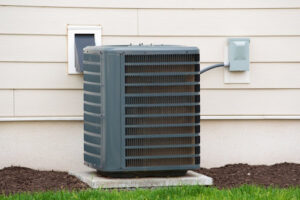
What Size Central Air Conditioner Do I Need?
When the heat of summer sets in, a central air conditioner becomes more than a luxury — it’s a necessity that stands between comfort and
In every home there is a distribution board, commonly called a fuse box or circuit breaker box. It is the heart of your home’s electrical system. Here a few facts you should know about your fuse box:
1. Fuses prevent fires: Fuses are made for the express purpose of giving their life for yours. They are the sacrificial lambs of the electronic world. When too much current passes through a fuse or breaker it interrupts the flow of electricity. Without this safeguard, electrical surges could cause overheating or even a fire.
2. Fuses and breakers should be upgraded every 20 years: If your breaker box is older than 20 years, it may be time for an upgrade. Over time, energy use has changed. The demands placed on breaker boxes today are much greater, and an old system may not be able to handle it. If your breakers or fuses are constantly blowing or tripping, you may want to think about an upgrade. Generally if you have actual fuses, you have an electrical system that is over 50 years old. You may want to think about upgrading the entire system- including the wiring and outlets inside the house- for safety. An ounce of prevention is worth a pound of cure.
3. Fuses blow for a reason: Find out what it is before you reset or replace. There is always a cause; it may be that you have overloaded the electrical system. If so, just turn off some electrical equipment and try again. Electric clothes dryers and ovens, heaters, air conditioners, vacuums and hair dryers are often the culprits of an overload. If there is any sign of an electrical fire- such as sparks, smoke, or burnt and melted wires- DO NOT reset the system. Call an electrician before restoring the power.
4. Fuses need to match the current: The volts passing through the fuse or breaker should match the volts the fuse can take. If you have a fuse that is too small for the volts that are running through it, there is a possibility of arcing. If the fuse is too large, it may not blow when a surge occurs. Either way, the surge will continue into your electronic equipment and could cause a fire.
5. There are more fuses than you think: Before you go out to reset your fuse box, take a look around. What is off? What is still on? You may not have to go outside at all. In some homes an internal fuse is connected to the electrical outlets. If so, there will be a red reset button located between the sockets. If only one plug is affected by the outage, try pressing that red button. It takes a little force to get it all the way in, but it should click. Before you do that, make sure that whatever equipment caused the issue is unplugged, and never use anything metal to push the reset button.

When the heat of summer sets in, a central air conditioner becomes more than a luxury — it’s a necessity that stands between comfort and

Every homeowner has experienced it at one point or another: the water in the sink takes forever to drain, the shower floor is covered in

Lightning strikes can be a terrifying experience for any homeowner. The powerful boom and bright flash are unmistakable, leaving you to wonder about the safety